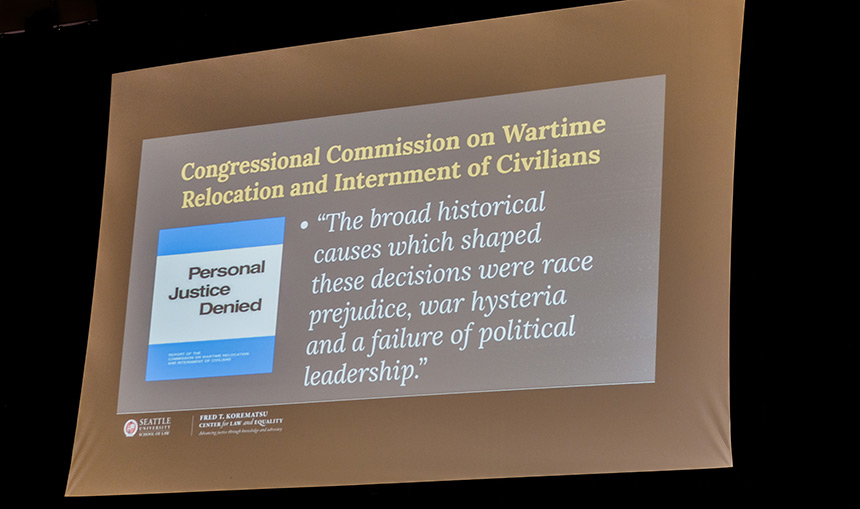By Andrew Cohen
Justice delayed isn’t ideal, but it’s better than justice denied — especially if the lessons gleaned help avert similar mistakes.
At its annual spring symposium on Jan. 28, the Asian American Law Journal at Berkeley Law commemorated the 40th anniversary of the coram nobis case overturning Korematsu v. United States. The event examined Korematsu’s importance, historical context, and ongoing pertinence in the face of global threats to civil rights.
In 1944, the U.S. Supreme Court upheld the internment of nearly 120,000 Japanese Americans on the West Coast during World War II, ruling the detention a “military necessity” not based on race. At the symposium, attorneys who helped overturn Korematsu and others involved in two related cases described how the cases unfolded and what lessons they now offer.
Keynote speaker and Korematsu coram nobis legal team member Lorraine Bannai directs Seattle University School of Law’s Fred T. Korematsu Center for Law and Equality and Professor of Lawyering Skills. Outlining the history of exclusion and animosity against Asian Americans when they first arrived in the U.S., she said that in 1905 the Japanese and Korean Exclusion League declared, “We cannot compete with people who have such a low standard of civilization, living, and wages.”
Soon after Pearl Harbor was bombed on Dec. 7, 1941, Japanese Americans were removed from their homes — first to temporary confinement centers, and later to more permanent camps in desolate areas of the U.S. Fred Korematsu, an Oakland native and civil rights activist, resisted the internment and went into hiding before being arrested.
Stressing that there…
Read the full article here





